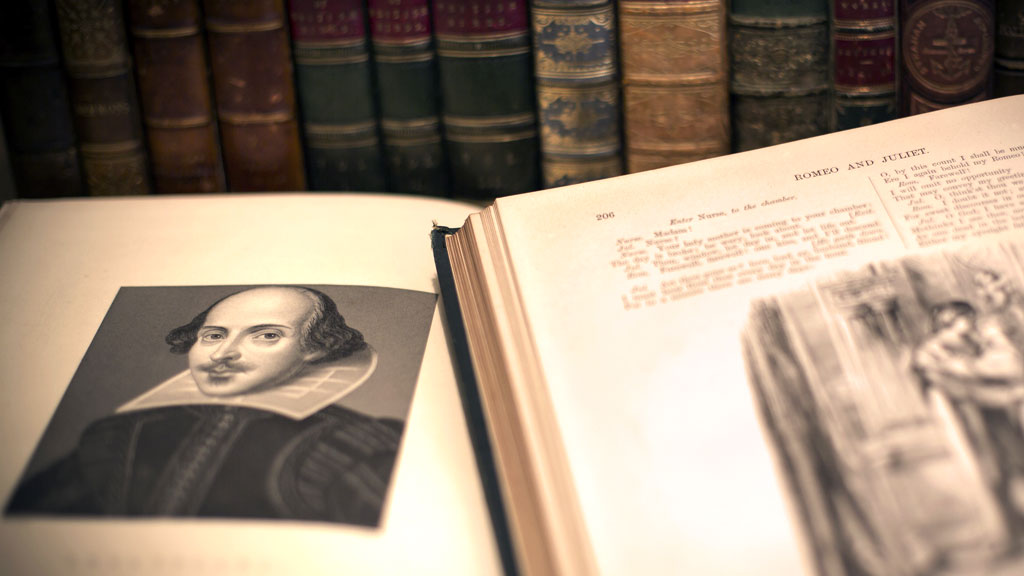Selling off Shakespeare: Arts Council raises concerns
The University of London is considering selling some of Shakespeare’s earliest folios to raise money. But the Arts Council tells Channel 4 News it would undermine trust in public institutions.

The University of London’s Senate House library is considering the sale of a rare set of Shakespeare folios to raise an estimated £3m to £5m to go towards its historical research collection.
The proposal incurred the wrath of academics, and now Arts Council England has waded into the debate, telling Channel 4 News that although the decision is up to the university itself, the plan may give the impression that important decisions about the UK’s cultural life are driven solely by financial concerns.
“The Arts Council strongly believes that members of the public should be able to access art and items of cultural relevance,” said a spokesman.
“It is of great importance that the public retain trust in museums, libraries and galleries to look after the collections held in their name. We are concerned that trust in these institutions may be undermined if disposals from collections are seen to be driven by financial considerations.”
We already own other copies of the folios, and we want to raise money in order to be able to increase other areas of the historic collections – Senate House spokesman
The folios that could be up for sale include the first, second, third and fourth edition folios, first published in 1623, 1632, 1664 and 1685, which are were bound together in the 19th century. The university has seven other folios, some in original 17th century bindings.
But the rare editions were only donated by Sir Louis Sterling in 1956 on the condition that they would have a permanent home on the library shelves.
British bard abroad
Shakespeare scholars and academics have raised concerns that going against his wishes would put off future donors – and take rare, valuable items out of the public domain. Sir Brian Vickers, a visiting professor at University College London, said: “One of these copies may contain a correction that has puzzled people for many years and has never been solved. So to sell them is an act of stupidity of the highest order. These are invaluable documents for research purposes.”
In theory, the folios could be bought by a foreign buyer if put up for sale.
However the Arts Council’s reviewing committee may put up a fight: items over 50 years old, and above a certain price bracket, have to get an export licence approved before they can leave the UK. And a committee within the Arts Council can decide whether to recommend an export ban is applied by the Secretary of State.
Charity case?
Even for sales within the UK, museums are obliged to meet a range of criteria if they are to sell off any valuable items, including that the decision to sell is a last resort in trying to raise funds, but libraries come under different regulations.
Senate House would need the approval of the Charity Commission if it was to go ahead with the unusual – and controversial – sale, and would need to prove that it was in the interest of the 4,200 collection of rare and first edition books left by Louis Sterling.
Shakespeare’s “first folio” is the name given to the first printed collection of 36 plays, and is considered the most valuable, and accurate, historical source.
Sir Richard Eyre, the former director of the National Theatre, also said: “Both in itself and as an emblematic gesture it is wrong. Partly because it sets a precedent: these things must be valued, and if academic institutions don’t value them the game is up, really. It’s completely wrong, indefensible.”
We are concerned that trust in these institutions may be undermined if disposals from collections are seen to be driven by financial considerations – Arts Council
Putting his case for the possible sale, a Senate House spokesman told Channel 4 News: “We already own other copies of the folios, and we want to raise money in order to be able to increase other areas of the historic collections.”
However considering the extreme reaction to mere suggestion of the sale, he said that a consultation with a “wide selection of academics” would be carried out before any sale went ahead.
He added: “Clearly the initial response is now fairly clear.”
-
Latest news
-
Laughing Boy: New play tells the tragic tale of Connor Sparrowhawk5m

-
Sewage warning system allows some of worst test results to be left off rating system, analysis shows3m

-
Post Office inquiry: Former CEO didn’t like word “bugs” to refer to faulty IT system4m

-
Israeli soldier speaks out on war in Gaza12m

-
PM’s defence spending boost should be ‘celebrated’, says former Armed Forces Minister4m

-




